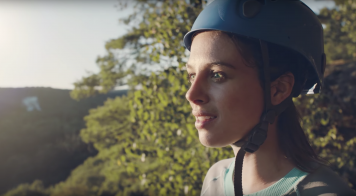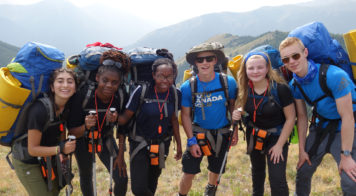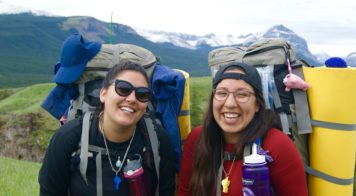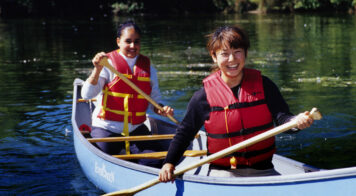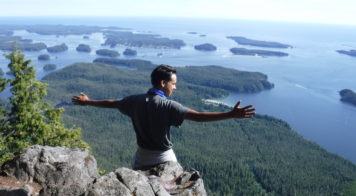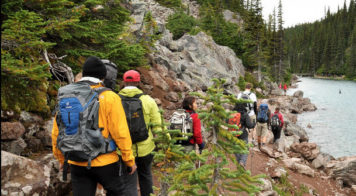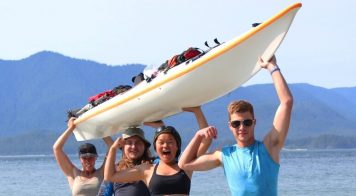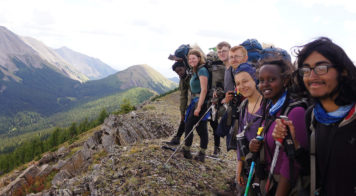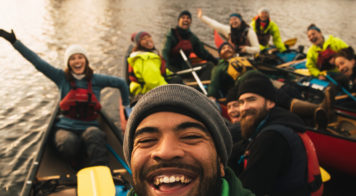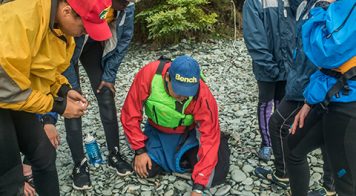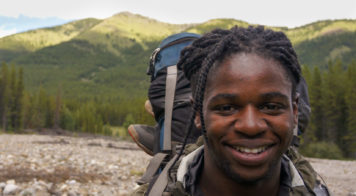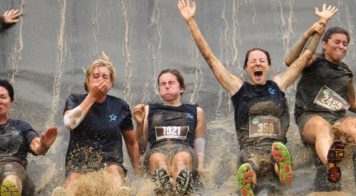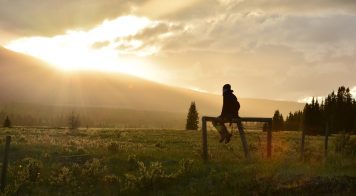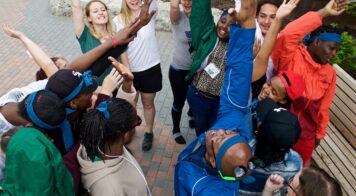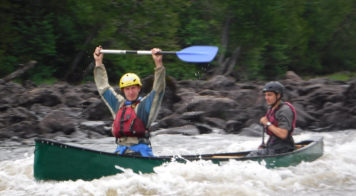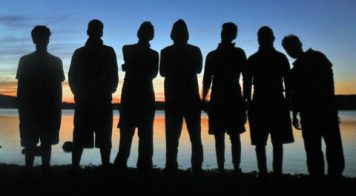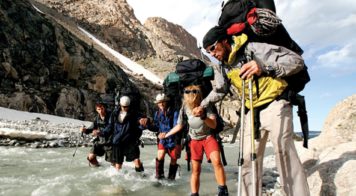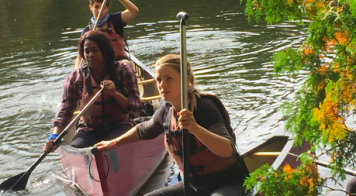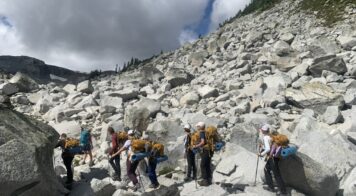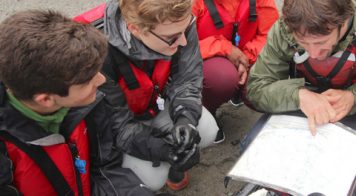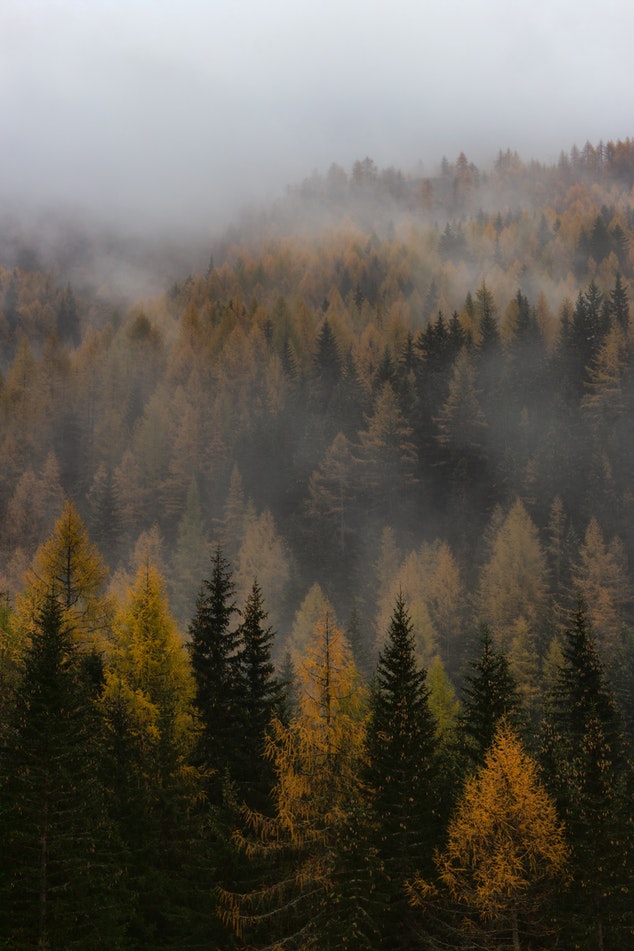From ‘hot and hotter’ Rio De Janeiro to small-town Quebec: a newcomer’s story about getting outside in Canada
As a nature lover from Brazil, I thought I’d have no trouble diving into Canada’s outdoor culture when I moved here in 2015. Was I ever wrong! There was so much to learn and so many obstacles to overcome that even now, eight years later, I’m still figuring things out. So when I was asked to write about how and why newcomers can sometimes feel shut out from the outdoors in a country that prides itself on outdoor fun, I knew I had to share my own story.
Have you ever felt this way? If so, let me tell you how Outward Bound Canada (OBC) is working to make the outdoors more accessible to everyone, no matter where we come from.
Learn everything — again
In Rio de Janeiro, my hometown, there are only two seasons: hot and hotter. When it gets as cold as 17°C in the winter, people stay indoors because it’s too cold. Sneakers and a hoodie are all you need to stay warm on a winter hike. That was pretty much all I had when I arrived in Canada – and I quickly realised that outdoor activities require a lot more preparation, like knowing how layers work, what clothing materials are appropriate for what weather, and what gear you need just to survive outside.
The scariest encounter I had on a hike in Brazil was howler monkeys following me on a trail at night – nothing remotely comparable to the thought of encountering a grizzly bear in Canada… and possibly having to spray it to save my life! My Canadian friends laughed and called me a wimp, but the idea of encountering large animals like this in the wild still scares me, nearly a decade later. And it’s not just the bears you have to worry about when you venture into Canada’s wilderness: for example, you need to know how to survive the freezing cold, avoid avalanches, and protect yourself and your food from wild animals.
Learning all these things can be completely overwhelming for newcomers. It’s like starting from scratch, and that’s just one of the many challenges that come with starting over in a new country – like finding work and living in a different language.
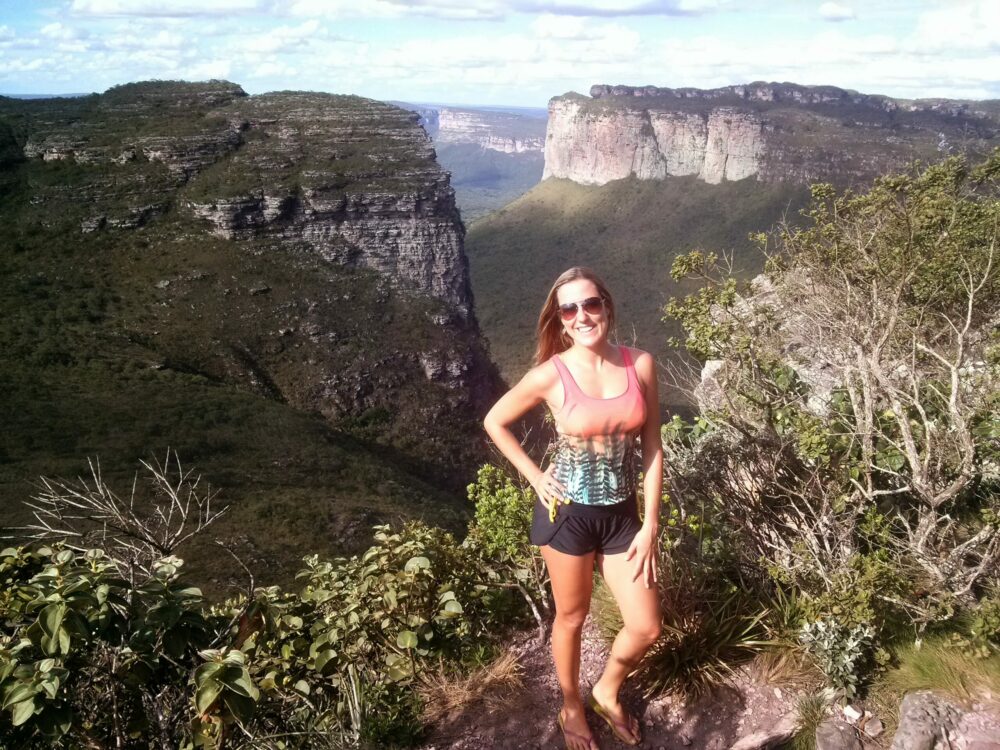
Lack of money and means
It’s tough when you don’t have the money to prepare and go on your adventure. Quality gear and clothing can cost a fortune. I worked full-time for a few years before I could finally afford good hiking boots and a comfortable backpack. When you’re new to a country and just getting by, it’s just not feasible to spend that much on leisure.
But even if you manage to get yourself some good gear, you might run into another obstacle: getting there. Most hiking trails and wilderness areas aren’t exactly accessible by public transportation. And on a tight budget, you can’t rent a remote cabin for overnights, either. You’ll have to make do with the few parks you can reach by bus, or consider carpooling, which can be a hassle (and dangerous) if you don’t know many people in your new country.

Not knowing cultural norms and behaviours
Another obstacle for newcomers trying to enjoy the outdoors in Canada is all the unwritten rules and cultural norms we have to learn. For example, if I wanted to camp in Brazil, I could just call a campground and book a spot for the weekend. But here? You have to wait for the day the sites become available and then reserve a spot for yourself, four or five months in advance. How am I supposed to know if the weather will be nice at that time? Or if I’ll make it based on my work schedule, or if I’ll even feel like camping five months from now? And don’t even get me started on how quickly outdoor registrations fill up. It’s so competitive!
But it’s not just about figuring out dates and booking in advance. It’s a whole culture change, where I have to change the way I grew up and have lived all my life, and adapt my personality and even the smallest habits, to a new way of doing things.
The feeling of not belonging in the outdoors
If you’re new to the outdoor scene, not knowing what you’re doing, without the right gear, and not fitting in with the culture can pile up and make you feel like you don’t belong. I remember being embarrassed by my inadequate clothing and gear when I went hiking. I was freezing and thought I’d never get used to the weather. To make matters worse, I sometimes felt like local hikers would mock and talk down to me, adding to my discomfort.
Still, I was determined to work in the outdoor sector in Canada. I once went to a career fair and asked how I could apply to be a guide at popular tourist destination in Vancouver, only to be rejected in front of everyone because they didn’t hire “guides with foreign accents” — the fact that I speak four languages that could help me provide better service to visitors wasn’t even considered. Only people who have experienced something similar know how humiliating and discouraging that can be. If I hadn’t been so determined (or stubborn, as my mom says) to ignore and overcome the barriers, I wouldn’t be working at OBC today — a place where diversity, accents and different cultures are seen as positive attributes, not flaws.
If only the Training Academy had existed when I arrived in Canada!
If there is one organization that knows firsthand that there is a chronic lack of diversity in the outdoor sector, it’s Outward Bound Canada. After all, OBC has been operating as a charity in Canada since 1969, finding, year after year, that the outdoor industry is still under-represented in terms of diversity and gender – which in turn reinforces in newcomers a sense of not belonging and perpetuates the status quo. But how are you going to find newcomer instructors when we’re still struggling to find our footing in Canadian outdoor culture?
After years of trying unsuccessfully to diversify its team of instructors, OBC decided to take matters into its own hands. Thus was born the idea of the Outward Bound Canada Training Academy for Outdoor Professionals, a fully-funded training opportunity through the Government of Canada’s Sectoral Initiatives program to help newcomers, BIPoC and 2SLGBTQ+ folks gain the social-emotional and technical skills necessary to build a thriving career in the outdoor sector.
The Training Academy launched in 2022 offering a unique combination of experiential workshops and outdoor journeys across Canada. Participants of all experience levels (or none) can apply. And the best part? It’s completely free: food, accommodation and equipment are provided during the training, as well as the necessary certifications to work as an outdoor instructor. Plus, after you complete the program, you’ll get a year of mentoring and job search assistance in the outdoor industry or on applying your newly acquired skills in other fields.
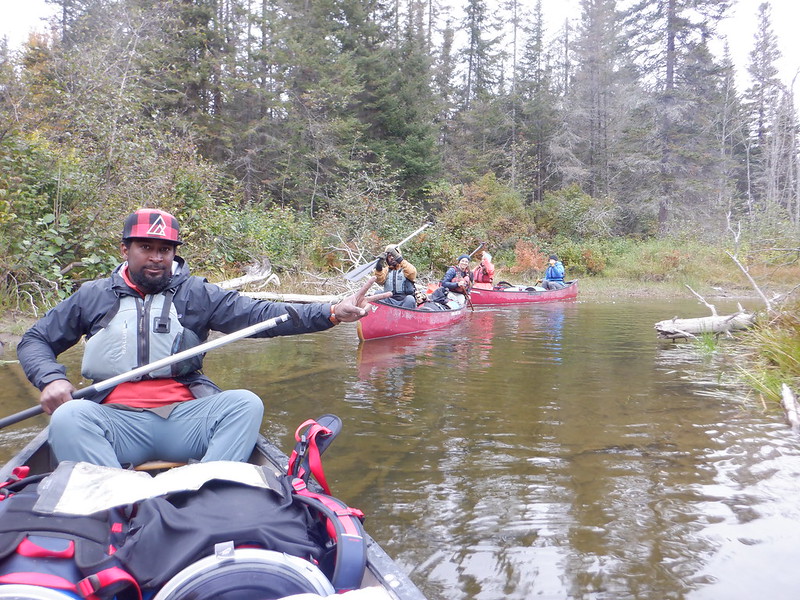
But maybe you’re not sure you want to pursue a career in the outdoor sector? Then the Training Academy offers you the unique opportunity to experience the work of an outdoor leader. And if you decide it’s not for you, you can bring interesting real-life experiences to job interviews in any field when you’re asked questions like, “Tell me about a time you showed leadership skills.” Not to mention all the social-emotional skills employers look for in hiring, like adaptability and initiative.
And, of course, the program is perfect for any newcomers who just want to learn more about outdoor activities in Canada so they don’t become bear food or turn into an ice cube when they finally decide to go on a long hike with their Canadian friends.
Seriously, the only downside to the Training Academy is that the program didn’t exist when I arrived in Canada.. Lucky for you, though, it does exist now and registration is open. Sign up for Fall 2023 and join the 600+ participants as they make the Canadian outdoors more diverse and welcoming – and have lots of fun in the process!
Click here to learn more about the Training Academy and sign up today.
About the author:
Thais Freitas is the communications manager at Outward Bound Canada. She moved from Brazil to Vancouver, BC in January 2015 with a backpack and a lot of hope. Now living in Quebec with her partner and children, she shares her experiences with storytelling, outdoor education and permaculture on her website ThaisFreitas.com.
